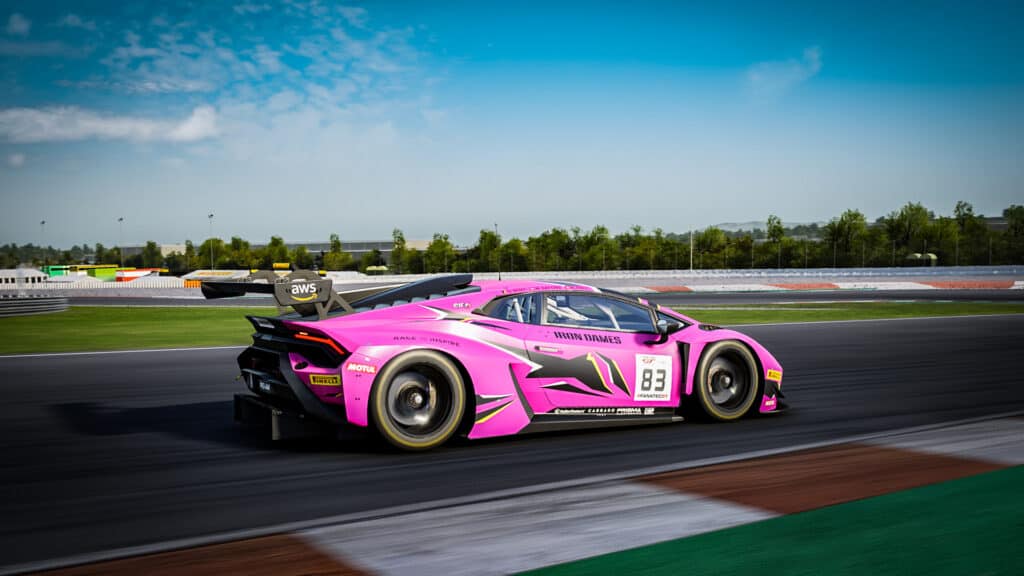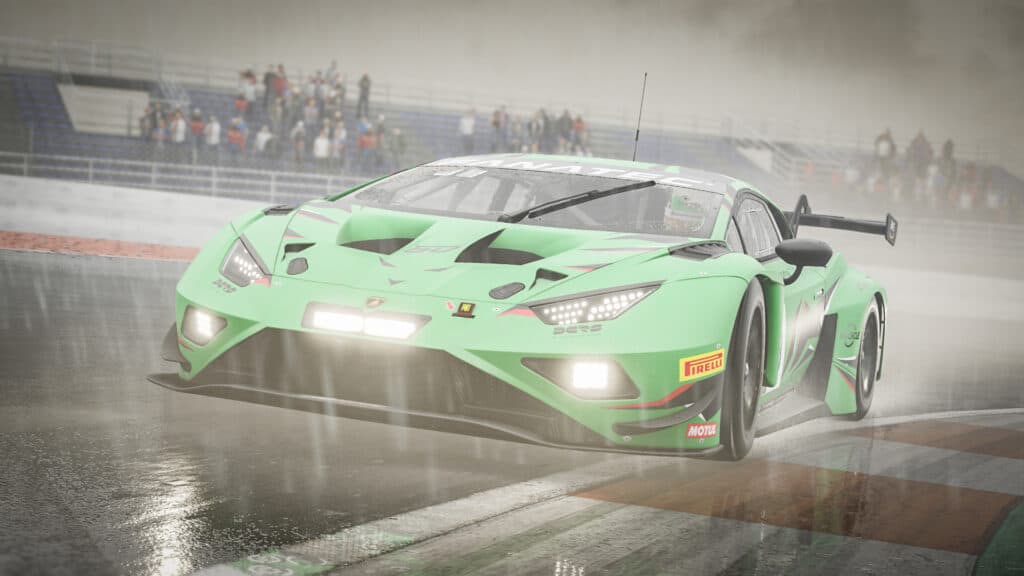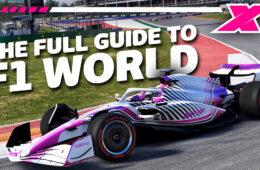Assetto Corsa Competizione’s GT World Challenge DLC pack introduced three new cars and a new track to the sim today (18th of April 2023). But a new update to the game – v1.9 – has also seen the addition of an interesting new feature: engine brake maps. However, these are just for one car; the new Lamborghini Huracán GT3 Evo2.
Every car in ACC has alterable ECU maps, designed to change a car’s fuel usage or the severity of throttle application, making the car easier to drive or making its power delivery more or less responsive.
Although advantageous in real-world motorsport, sticking with the most aggressive ECU map is nearly always the best option in ACC, even in wet conditions, except for isolated examples (see our engine mapping guide for more information).
Eight different maps are available for the Lamborghini, with five set aside for altering the severity of its engine braking, two for wet weather driving and one for fuel-saving under safety car conditions (safety cars aren’t featured in ACC, but this map can be used on the formation lap to save fuel).

What is engine braking and how does it work in Assetto Corsa Competizione?
Engine braking relates to the rate at which a car’s engine slows the car down naturally after releasing the throttle pedal (coasting). Put simply, more engine braking promotes oversteer while coasting, and less engine braking will induce more understeer.
Maps 1 to 5 alter the severity of the engine braking setting, where 1 represents the lowest amount and 5 the highest. Map 8 is a fuel-saving map for safety car interventions, while 6 and 7 are wet weather throttle maps offering better drivability in slippery conditions. These wet maps come with low and normal engine braking options (6 and 7, respectively).

For players struggling to keep the car under control on corner entry, selecting map 1 may be advantageous, while those experiencing understeer can select map 5 – helping induce rotation into corners.
In theory, ACC drivers can switch engine brake maps throughout a race, adjusting the setting as fuel loads decrease to manage oversteer and understeer. This could be a big advantage in professional esports races, for example, but only time will tell.
In reality, however, the effect of engine brake mapping in ACC is very subtle, and through dry testing at Valencia I found the most aggressive engine brake map (setting 5) to be the most driveable, to the point where the other settings are superfluous.
That’s not to say the less extreme settings aren’t useful, as in some scenarios – like the onset of a rain shower while the player is using a full dry set-up – less severe engine braking could be the difference between nailing a corner or ending up in the barriers.
We’ll be sure to test this feature extensively in the coming days and update this article with our findings. Meantime, for more information on ACC’s v1.9 update and the 2023 GT World Challenge DLC pack, check out our extensive review article, including Valencia set-ups for all three of the DLC’s new cars.
What’s your opinion on adding engine brake maps to ACC? Let us know in the comments below.





















